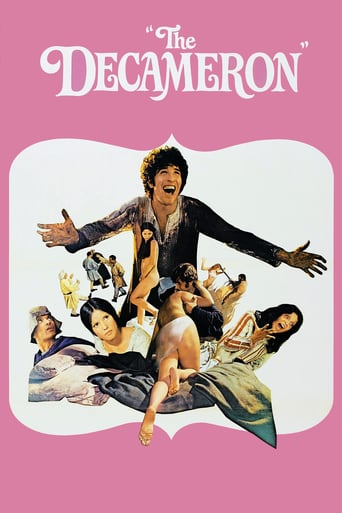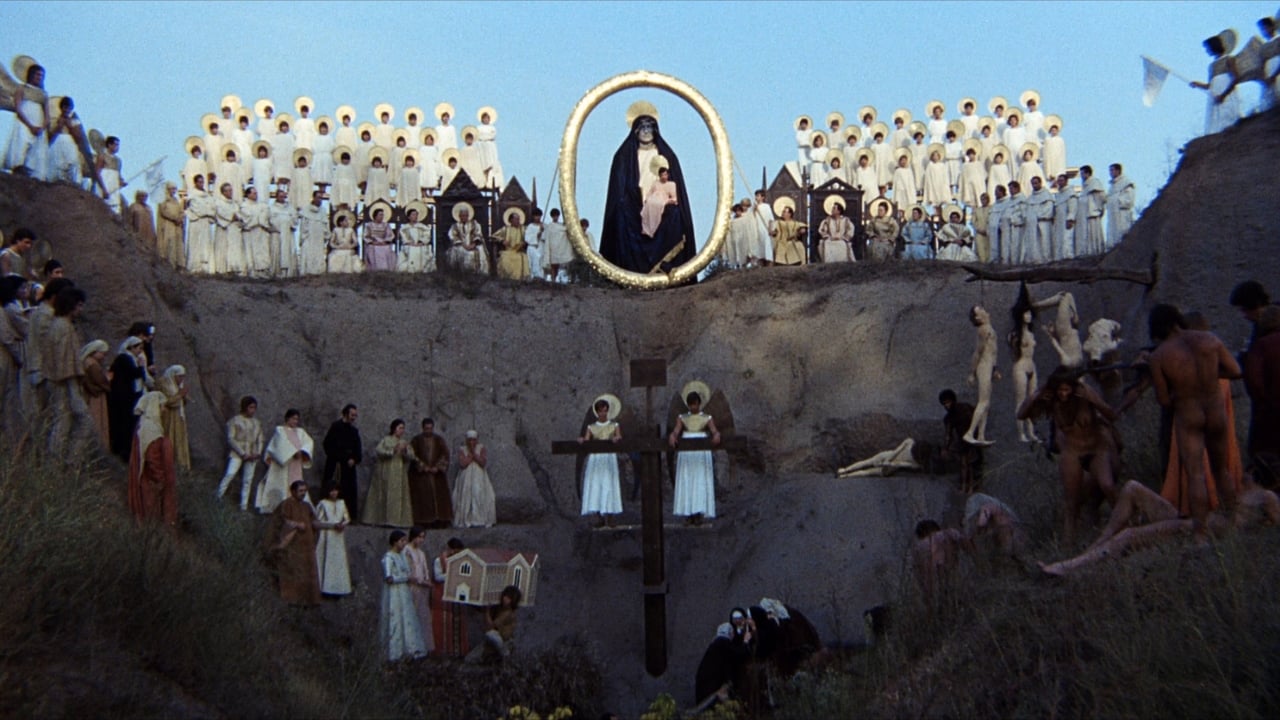grantss
Has its moments but mostly uneven, with atrocious performances.Nine stories from Giovanni Boccaccio's novel of the same name. Directed and written by Pier Paulo Pasolini.Some of the stories are interesting, even amusing but none of them really hit the mark in a big way. Most feel anti-climatic, and needing of more substance. Some are just plain pointless and/or over before they've even started. There are some recurrent themes, especially those of morality and religion, but nothing really gets tied up. I kept hoping for something that would connect all the different stories, to make them collectively profound, but nothing came. The closing line of the movie was one rare moment of profundity though, but it didn't really have a context.Then there's the acting. The performances in this movie are incredibly bad. Think primary school play bad. There's a handful of exceptions but it's a cringefest from start to finish.
clivey6
Plenty of positive reviews on this site. The Decameron is great - the 14th-century book I mean. What I've read of it anyway, the writing is a mix of Saki and Tales of the Unexpected and holds up very well, in particular the tale about the Christian who hopes to convert his Jewish friend, who decides to go to Rome to observe the clergy to see what all the fuss is about, with unexpected results.The film can't cover something like 100 tales in the book, but the director seems to handpick the bawdy ones for our (or his) delight. But the bawdiness is unerotic, as if to highlight how comical and debasing such lusty antics. And the 'punchline' - so excellent in the story I mentioned above (which doesn't feature) - is often so weak as to be unnoticeable. You wait for something more to happen, only to find, oh, it's a new story. Okay, that was it was it? What's more, there isn't the comic touch to milk some of the set-ups properly. Frankly, some of the Carry On films do this stuff far better. It's a shame they never set a Carry On film in the medieval era actually. On the plus side, the wonderful scenery stays with you, and it is good to see women who aren't the usual Hollywood example, it does change the mindset regarding the opposite sex a bit.This is a rare example where the book (in particular the Penguin translation) is easier to dip into.
Lee Eisenberg
I remember that I first heard of Pier Paolo Pasolini in John Waters's "Cecil B. Demented", and I interpreted that he was a very arty, non-mainstream director. I then read about how he always infuriated the Catholic Church, and they often took him to court (I get the feeling that his open homosexuality might have also gotten to them), and was brutally murdered in 1975.So, I've finally seen one of his movies. "Il Decameron" (or "The Decameron", depending on which language you want to use) tells several stories of life in a medieval-to-Renaissance Italian village. There's lots of sex to go around (especially in places where it's not supposed to happen), and any gross thing that you can think of will probably happen. But believe you me, Pasolini knows how to make it fascinating; after all, who doesn't love some debauchery now and then? So anyway, this is definitely the sort of movie that you would watch for film history classes and things like that. Not at all a movie for the world's straight-laced factions. But I certainly liked it, and not just because Caterina was really hot. This movie is an important part of film history, Italian history, and other things. You just might want to go to Italy after watching it.
Armand
The Paradise is only joy. An space without masks and rumors, trips and hypocrisy. A slice of this land is "Decameron". The search of beauty and sense of life are the ingredients of a way to see the reality like an old game with new rules. Like Jacob, Pier Paolo Pasolini have his own fight. The truth for director is part of Greek kalokagathia. The trips of characters, theirs tales, they innocents sins are facts of a exterior reality and forms of the first desire. The role of director is significant for his illusion about life and art. For him, the way to Heaven's Garden is open, yet. The way,only, is not correct and the expectations are fakes. The Bocaccio's novel and this film are not the fruits of same tree. The message is the character of Pasolini. Why an disciple of Giotto? Because the painter, like his pictures in Asissi church, represent the beginning. Why "Il Decameron"? Because the way to himself is always an great adventure.


 AD
AD




